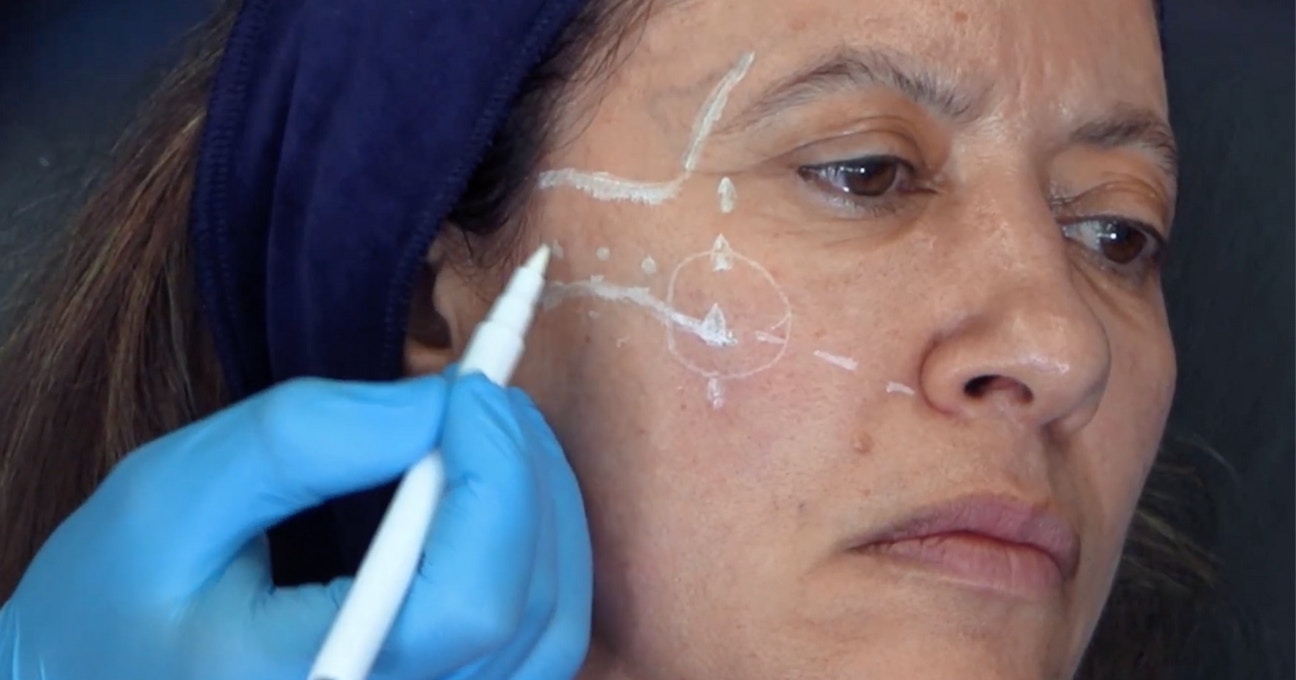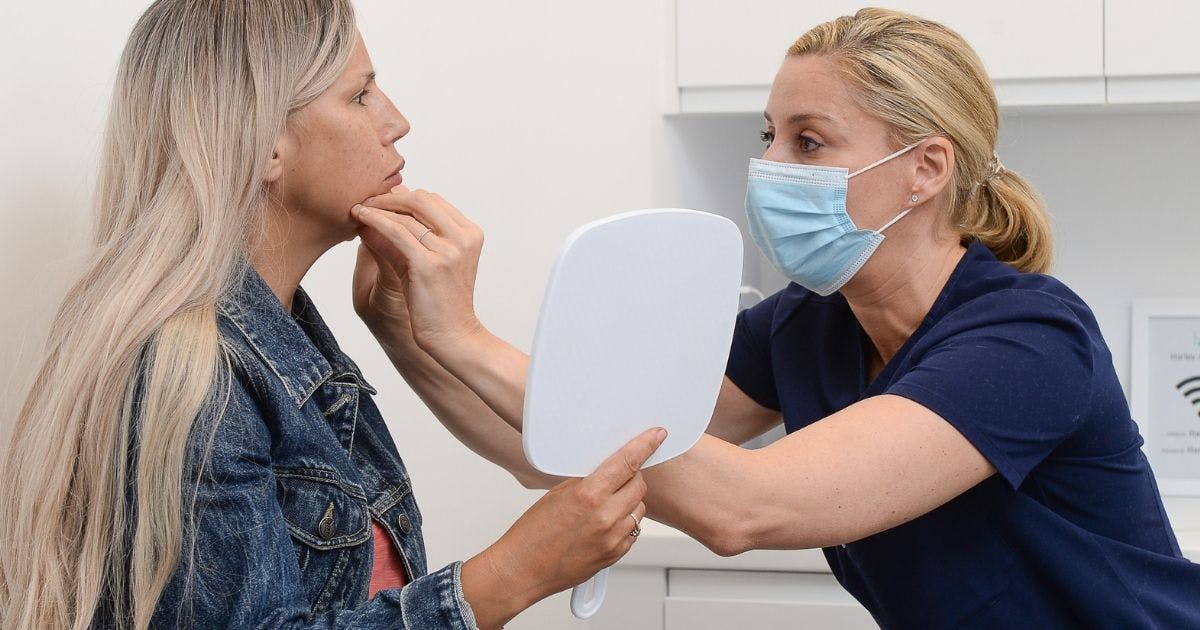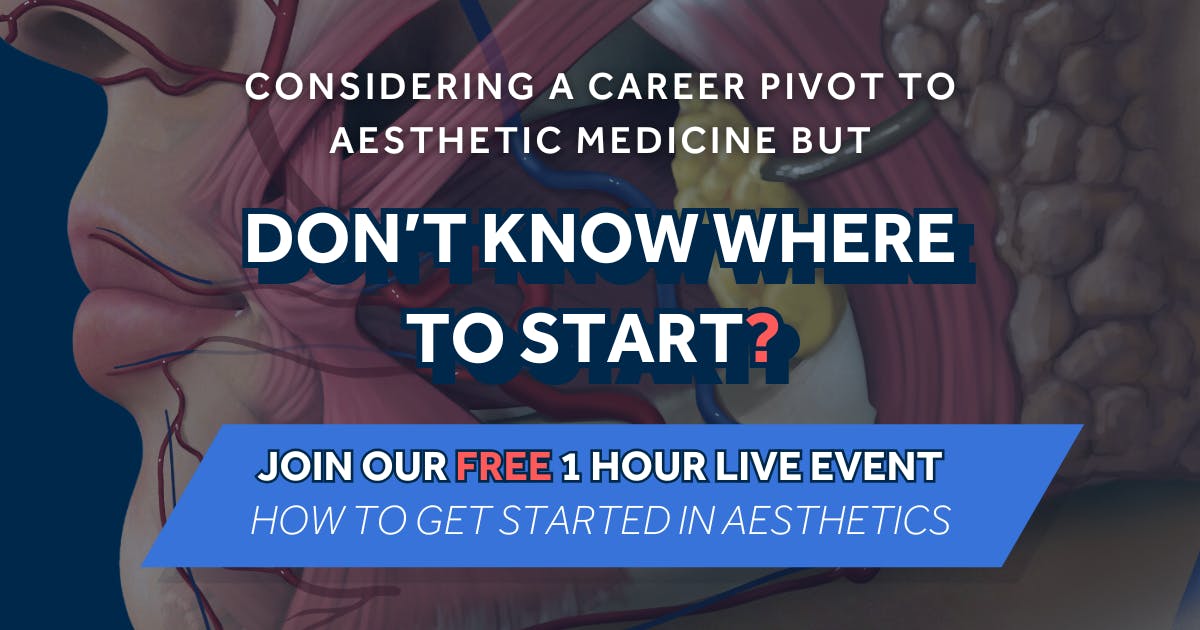Is Aesthetic Medicine Really Medicine? Yes – And Here’s Why

“Is aesthetic medicine really medicine?” This is one of the most common queries we hear from healthcare professionals considering a career in aesthetics.
“Will I still be a doctor if I’m working in aesthetics?” You’d perhaps be surprised by how many times we’re asked this. The answer, of course, is yes!
Not only is aesthetic medicine a true medical specialty, but it’s no less valid than any other branch of medicine.
Here we explain some of the perceptions versus the reality to help you gain a truer picture of what being a medical aesthetics practitioner involves.

The Royal Society of Medicine recognises aesthetic medicine as a specialty
In August 2024, the Royal Society of Medicine recognised aesthetic medicine as a new specialty – the first addition in 35 years.
This backing helped to further validate the field from a medical perspective.
It’s hoped that this corroboration will challenge many negative perceptions held within the healthcare community.
Dr Tristan Mehta, Founder & CEO of Harley Academy and aesthetic medicine entrepreneur, explains...
“Is aesthetic medicine a true branch of medicine? Absolutely, yes. As you see the field evolve and advance, you’ll see it become its own defined discipline. We’re starting to see this happening in other countries; we’ve seen it here in the UK with the recognition from the Royal Society of Medicine. Also, with the introduction of the aesthetics licensing scheme, I believe we’re getting even closer to that objective of aesthetic medicine being seen as a valid specialty in its own right.”
Why some medics are dismissive of aesthetic medicine
There can be a certain element of snobbery and misunderstanding from other branches of medicine when it comes to aesthetics. You may encounter negativity from colleagues, especially within the NHS, for a number of reasons.
Common perceptions other healthcare professionals have of aesthetics
- Perceived lack of medical rigor: Due to a focus on cosmetic outcomes rather than addressing underlying medical conditions, some medics consider the field to be less scientifically or clinically rigorous
- Commercial focus: Elective aesthetic practices are often seen as profit-driven. Negativity can come from a belief that practitioners place an emphasis on client satisfaction and financial gain rather than health or medical outcomes. This, in turn, can raise concerns about ethical practices
- Insufficient training standards: It's no secret that aesthetics regulation is close to non-existent in the UK at present. There is certainly aesthetics training available that is far less stringent than in other medical specialties. This can lead to concerns about patient safety and outcomes, especially when ‘botched’ cases and complications tend to end up at the already over-stretched NHS’ door.
In truth, whilst there is an indisputable lack of aesthetics regulation and mandatory training standards in the UK, these other perceived ‘problems’ with aesthetic medicine aren’t the reality.
Reality of working in aesthetic medicine
- Evidence-based aesthetic practice: Aesthetic medicine is a new and rapidly expanding specialty. There is a stream of research into all aspects including anatomy, products and patient psychology which evolves our knowledge, leading to new techniques and improvements. Due to the absence of legal standards, it’s down to the individual to commit to ethical, evidence-based practice and seek this information out. This is why we developed the Global Evidence Matrix – GEM by Harley Academy – to make this process easy for clinicians
- Commercial focus: Just because our NHS services are largely free for users, ‘commercial’ should not be a dirty word. Aesthetic practices are no more money-focused than, say, dentistry or any other form of private medical care. As a medical professional, bound by your professional body’s code of conduct, you should always act in an ethical, patient-centric way, regardless of whether money is involved or not. Earning money for your services is an entirely normal way of working in any sector!
- Rigorous, reputable aesthetics training: Whilst there are many unscrupulous providers out there, there are also various established, respected and regulated aesthetics training pathways available. At Harley Academy, we are proponents of committing to lifelong learning in aesthetics, despite practitioners being legally able to practise after completing a one-day training course. We offer a detailed postgraduate, Ofqual-regulated diploma botox and filler course with hands-on, one-to-one mentoring, to ensure clinicians are properly equipped with the skills and confidence to treat patients effectively. In fact, Harley Academy has more graduates than any other in the aesthetic medicine space and we specialise in delivering Level 7 training.
Is aesthetics just vanity?
Those involved in more ‘serious’ medical may dismiss cosmetic work as vanity, but does this mean it has any less impact on our patients? No. Ask any aesthetic practitioner and you’ll find both they and their patients find delivering safe, ethical treatment results rewarding and enriching.
Is there room for improvement? Certainly. Is it as bad as those outside the specialty often perceive it to be? Not at all.
On the subject of whether aesthetics is just vanity, Dr Tristan explains, “I think this is a really interesting question. It’s something even my patients ask me when they say, ‘I’m concerned about – this – am I just being vain?’
“I believe, when we’re concerned about certain physical traits, we’re in the domain of beauty. We’re dealing with ego, we’re dealing with external projection of the self. But we’re also overlapping with a deeper, more important part of our identity. This intersects with self-care, wellness and self-expression.
“For me, there’s a clear difference when your patients present to you; what we want to be doing in aesthetic medicine is focusing on the deeper, more personal aspects of self-expression and self-care.
“What we don’t want to be doing is treating patients because they feel insecure about specific things or where there are external pressures making them want a certain treatment.
“We always want to talk to our patients enough to understand the root cause of their driver for wanting treatment. In that sense, aesthetics isn’t just vanity. It’s about self-expression and self-positivity. It can absolutely be about vanity, in which case you have to be very careful about treating patients because we don’t yet have enough data from the appearance psychology researchers on the long-term prognosis for treating this cohort of patients.
“We are currently involved in research into this as part of our partnership with the University of the West of England and their world-renowned Appearance Psychology unit. As such, I hope to be able to provide more insights into this in the future.”
Understanding patient psychology and their motivations for seeking treatment are topics our Chief Medical Officer, Dr Emily Mehta, has covered in more detail.
Can healthcare professionals be successful in aesthetic medicine?
Whilst the landscape of our industry underscores the fact that the answer to this question is a resounding ‘yes’, Dr Tristan has a lot of thoughts in this area.
He told us, “This is what happens, someone says ‘I’m thinking about going into aesthetics’. Then their jealous, risk-averse friend or colleague will say, ‘The market’s saturated, I wouldn’t bother.’
“The truth is - and this is coming from data from the manufacturers, from industry reports – there are more patients or consumers growing into this field each year, looking for good aesthetic practitioners than there are practitioners to service those patients.
“Whether you’ll be successful or not is not because of the market – it's individual. It’s down to how you’re approaching this and your willingness to do what it takes to get anything off the ground. It’s vital to have the right mindset to be successful in aesthetic medicine.
“We do not have enough highly-trained, highly-skilled practitioners in aesthetics to cater to the increasing patient demand. If you’re ethical and committed to becoming skilled, educated and competent, then you will not struggle to become successful eventually. Like all things worthwhile, it’s going to take hard work but it categorically is not the saturated market some mistakenly believe it to be.”

Medical professionals are the most sought-after aesthetic practitioners
Through extensive patient research that we’ve been conducting with Professor Sebastian Cotofana and will be releasing soon, we’ve found that practitioners with a healthcare background are more sought-after.
An overwhelming number of participants advised that they wanted to be treated by an aesthetic practitioner who had a medical background. They also expected these practitioners to have achieved a specific level of qualification in aesthetic medicine, in addition to their previous medical training.
Whilst this may seem obvious for safety reasons, when you consider price differentials – non-medics often charge far less for treatments – it's a pretty powerful statement. This sentiment is only likely to grow once aesthetics regulation, and the proposed practitioner licensing scheme are implemented.
Can you balance NHS work with aesthetics?
Choosing to practice aesthetics part-time alongside your NHS work is absolutely possible. Many of our Harley Academy faculty balance NHS jobs with aesthetic practice and teaching, so we know it can be done!
This part-time pathway is a great solution for anyone who enjoys their NHS work but also wants:
- A creative outlet
- Another role you can take complete ownership of
- Additional earning potential
- Something flexible where you can dictate your own schedule
- A role where you can spend more time with your patients – and they’re happy to see you!
Full-time or part-time?
How far you want to take your medical aesthetics career is entirely up to you. Some clinicians like the balance between NHS work and part-time aesthetics. Others prefer to stay part-time until they build their confidence and patient list, then grow their days accordingly. Equally, for those who want to really throw themselves into the specialty, starting off as a full-time aesthetic practitioner is also viable.
The vast majority of our trainees work in the NHS full-time and fit their aesthetics training around this. How you manage this depends on how many balls you’re juggling, but – as with anything – if you’re committed to making a go of it, you’ll find a way! Whether you’re a full-time healthcare professional who’s also a parent or carer, or have fingers in many different career-based pies, we see people like you successfully complete our cosmetic courses, day-in, day-out.
As one of our Level 7 Diploma in Cosmetic Injectables students, Dr Saif Abbas Chatoo told us, “I feel like when you work in the NHS, you’re used to the pressure.” As a rotational NHS doctor and research associate, plus an aesthetics clinic owner and cosmetic doctor at an existing practice, all whilst completing his Level 7 studies, he’s a perfect example of making it work!
By investing this time in your education and career, you’re setting yourself up for success and potentially swapping some short-term wrangling for longer-term benefits. However, by making our filler and botox courses as flexible as possible, we try to make your training as accommodating as possible.
For more information on how we can help you to achieve your career goals alongside your existing responsibilities, give us a call. We’ve helped thousands of healthcare professionals along this path and have learned from all of them! Now let us use our insights and expertise to benefit you.
All information correct at time of publication
Download our full prospectus
Browse all our injectables, dermal fillers and cosmetic dermatology courses in one document
By submitting this form, you agree to receive marketing about our products, events, promotions and exclusive content. Consent is not a condition of purchase, and no purchase is necessary. Message frequency varies. View our Privacy Policy and Terms & Conditions
Attend our FREE open evening
If you're not sure which course is right for you, let us help
Join us online or in-person at our free open evening to learn more
Our Partners














STAY INFORMED
Sign up to receive industry news, careers advice, special offers and information on Harley Academy courses and services


